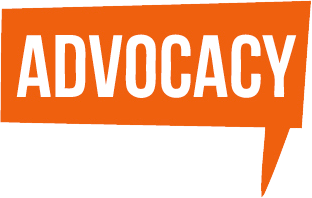Public Policy
Philanthropy Delaware advances the work of our members, and philanthropy as a whole, by advocating at the state and national level. We aim to engage in effective policy that will strengthen philanthropy and advance issues that members support, strengthen relationships and partnerships between philanthropy and government, and provide a strong, collective voice for philanthropic interests in Delaware. Here are some current resources we have gathered to assist you in your own public policy conversations, as well as information to keep you informed on the latest advocacy trends affecting philanthropy.
|
Philanthropy Delaware Public Policy Framework Philanthropy Delaware’s public policy framework will serve as a platform to better position Philanthropy Delaware to thrive in an ever-changing and increasingly challenging public policy climate. This framework will seek to boost advocacy on key organizational priorities through:
This framework will help Philanthropy Delaware reach its advocacy goals and key organizational priorities while strengthening philanthropic awareness in Delaware and promoting fairness, and equity, in grantmaking throughout Delaware. Organizational Public Policy Priorities Philanthropy Delaware has an opportunity to be a leading philanthropic force within the public sector by proposing policies and advocating for or against policies that do or do not align with the organizational and member goals, priorities or guiding principles. The public policy priorities below will serve as guiding principles which help inform Philanthropy Delaware’s government advocacy efforts at the local, state and federal levels respectively. Advancing Diversity Equity and Inclusion Philanthropy Delaware supports all public policy initiatives and funding decisions that advance diversity, equity, and inclusion throughout the philanthropic community and beyond. Doing so will ensure that communities throughout Delaware can thrive, regardless of race, geography, gender, physical or mental ability or background. Promoting diversity, equity and inclusion will also strengthen the work of charitable nonprofits and members alike, allowing them to better serve their missions and address vital community needs. Philanthropy Delaware will support policies that eradicate disparities and create equitable funding opportunities and solutions for all Delawareans. Bridging Government and Philanthropy Philanthropy Delaware supports policy efforts, initiatives and positions that further align the common interests of government and philanthropy. Such efforts will help bridge innovative funding partnerships and strategic collaborations between federal, state, and municipal governments and the philanthropic community. Strengthening and advancing collaboration will drive collaboration with stakeholders, spur regular communication with philanthropic funders, maximize reoursces and connect public private partnerships. Enhance Charitable Giving Philanthropy Delaware supports public policy initiatives that enhance and expand charitable giving. Philanthropy Delaware also supports tax policies that incentivize giving and policies that protect charitable deduction. Philanthropy Delaware opposes any policy that would impose floors, caps, or limits that weaken existing charitable giving incentives. Supporting Philanthropic Tax Policy Philanthropy Delaware supports tax policies that benefit the work of philanthropic funders and nonprofits alike. In addition to supporting charitable giving incentives, Philanthropy Delaware supports nonprofit sector exemptions from state and local property sales and use taxes. Philanthropy Delaware also supports tax policy that encourages gifts that aid in maintaining a strong philanthropic sector in Delaware. Philanthropy Delaware opposes new taxes, fees or payments on tax-exempt organizations or on member organizations that would limit their charitable giving. Government Budget Allocations in the Philanthropic Sector Philanthropy Delaware supports and will advocate for government budget and spending decisions at every level of government that help to strengthen the philanthropic sector, especially those that advance equity and inclusion. Philanthropy Delaware will oppose any budget cuts or decisions that will negatively impact the philanthropic sector and its partners or the grantees of our members. |
|


